Posted by Stephen Horowitz, Lecturer of Legal English
Fun with punctuation. (via social media)

Posted by Stephen Horowitz, Lecturer of Legal English

Sheika Al Kamyani is from Oman and is currently in her second year of the Two-Year LL.M. Program at Georgetown Law, specializing in International Business & Economic Law. This fall, she secured an externship with Foley Hoag LLP. Over the summer, she interned at Three Crowns LLP in London. Sheika previously worked as a Legal Advisor at the Foreign Ministry of Oman and holds an LL.B. from Sultan Qaboos University. Her hometown, Nizwa, is known for its rich history.
As I reflect on my first year in Georgetown Law’s Two-Year LL.M. program, I am reminded of the transformative journey it has been. From the moment I arrived, filled with hope and uncertainty, to where I stand now, confident in my direction, the growth has been both profound and unexpected. For those who may be feeling uncertain or lost in their journey, I hope my reflections will offer some helpful insights.
Pursuing an LL.M. in the United States was a hard-fought dream. Yet, even after achieving this milestone, I found myself questioning: What comes next? What is the real purpose of this degree, and what do I truly want to do with my life? Does this sound familiar? At some stage, we all ask the same questions. Below are a few key strategies that guided me toward a clearer sense of purpose—strategies that may also serve you.
Curiosity, I learned, is one of the most valuable tools during your time at Georgetown Law. With such a vibrant and diverse international community, the law center offers a wealth of perspectives, experiences, and opportunities to explore. Every day offers a new event—whether academic discussions, professional networking, or community engagement. I highly recommend that you attend some of these events and immerse yourself in areas you might not have initially considered. By broadening your horizons, you open doors to unexpected interests and valuable connections.
To put this into action, make it a habit to scan the weekly emails sent by Georgetown Law outlining upcoming events. Choose those that resonate with you, mark them in your calendar, and attend them. Some events may require advanced registration, so stay organized!
Reflecting on this, as an introvert, these events took a great deal of my energy, and I needed to prioritize the ones I chose to attend. But, in the end, it was worth it. I gained clarity on what I wanted to do, and I learned about the different areas of law practice.
If you’re unsure about your interests, the best way to figure them out is by trying different things. Take diverse courses, participate in externships, and engage in extracurricular activities like moot court competitions. Through this process, you’ll discover what excites you and what doesn’t. It’s easy to think you know what you like, but only by immersing yourself in new experiences will you truly understand your passions. In the end, you have your unique interests, and you can discover what they are by trying new things.
If you feel lost, rather than giving into your anxiety, think ahead. For example, you might already know that you want to apply for an externship. Figure out the steps you need to take. You could start by preparing your resume. Get it reviewed, revised, and polished so that you’re ready when opportunities arise.
When it comes to applications, there are two strategies. One approach is to apply widely—submit as many applications as possible and hope to secure a few offers. The other approach, which I used, is more focused. I targeted specific opportunities that aligned with my goals. This method worked for me and helped me land a meaningful summer internship. Both approaches have their merits, and you should choose the one that best suits your style.
One of the most valuable lessons I’ve learned is that it’s okay to ask for help. Whether from professors, teaching assistants, or peers, never hesitate to seek guidance. Initially, I was reluctant to ask questions, but every time I did, I was glad I had. People are often more than willing to assist, and each conversation I had led me to new insights or opportunities. Sometimes, a simple conversation can provide clarity or direct you toward resources you didn’t know existed. Don’t be shy about reaching out.
Lastly, give yourself permission to grow at your own pace. You don’t need to have everything figured out immediately. The LL.M. program is a time of exploration, so don’t rush through it. Enjoy the process, and be kind to yourself during moments of uncertainty or challenge. Personal and professional growth is gradual, and every experience—whether a success or a setback—contributes to your long-term development.
Final Thoughts
The path to self-discovery during my first year at Georgetown Law wasn’t linear, but it was incredibly rewarding. By staying curious, trying new things, planning ahead, and seeking guidance, I gained a clearer sense of purpose and direction. I hope these reflections will help you as you navigate your own path, wherever it may lead!
Post by Stephen Horowitz, Lecturer of Legal English
Here’s what the Georgetown Legal English faculty have been up to since the end of the spring 2024 semester….
****************
Returning from parental leave, Prof. Cheng is set to teach sections of Legal English I and Professional Responsibility this fall. Additionally, he is working on a new Legal English Negotiations curriculum for the spring 2025 semester.
Professor Dundon had a busy summer, which started with his teaching an Advanced Contract Drafting class to LL.M. students at IE Law School in Madrid, Spain. It was his fifth summer teaching at IE Law, and he always feels very honored to be there – the school community is very welcoming, and the students themselves are always extremely impressive.
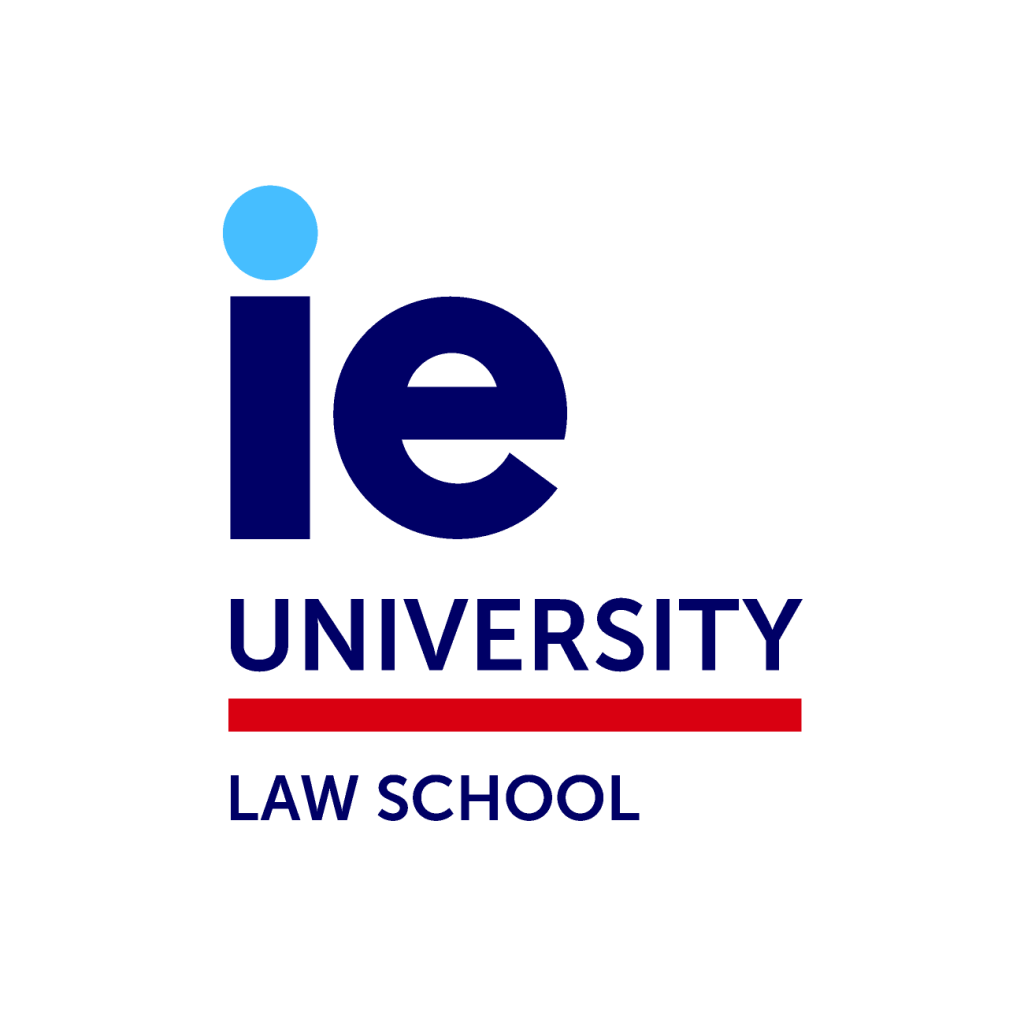
Next, Professor Dundon presented his research at two linguistics conferences in the United Kingdom: the i-Mean 7 Conference on Meaning in Social Interaction in Bristol, and then the 5th European Conference of the International Association for Forensic & Legal Linguistics in Birmingham. His first presentation was an explanation of procedural and evidentiary rules in U.S. trials that can affect linguistic analysis of trial testimony. The second presentation summarized Professor Dundon’s recent research about how U.S. Supreme Court Justices and attorneys at oral arguments sometimes speak “on behalf” of institutions and clients, and how this phenomenon manifests in linguistic features.
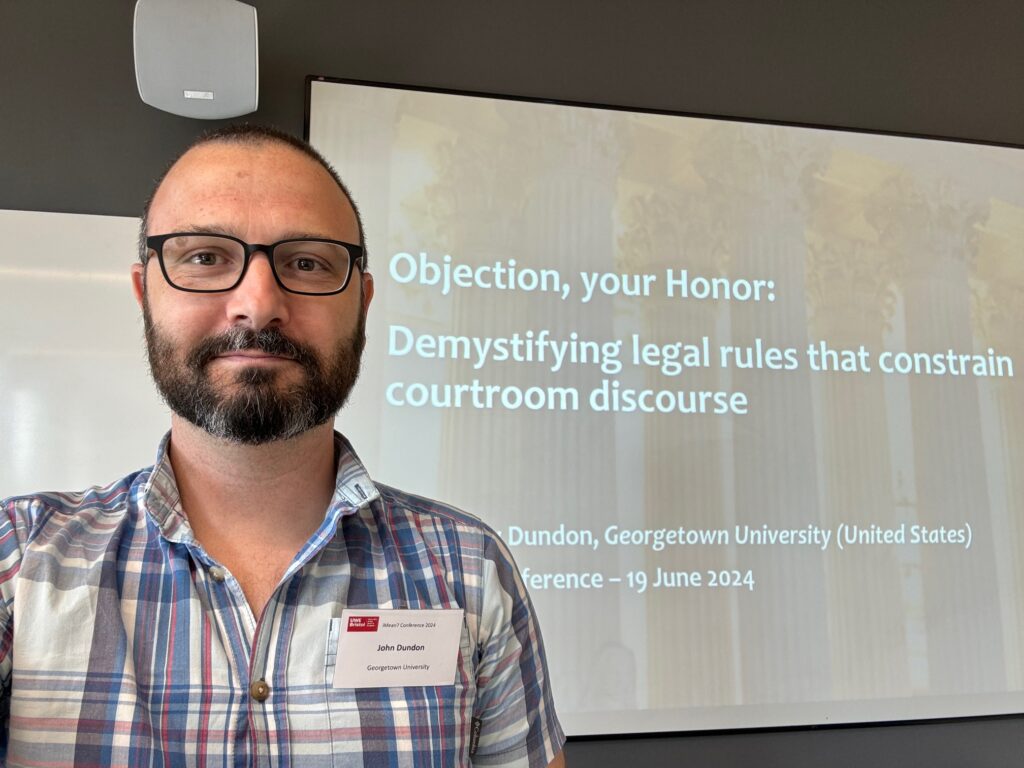
Professor Dundon then spent a month in Taiwan, teaching Contract Drafting in English to law students at the National Chengchi University College of Law and practicing attorneys at the Taipei Bar Association. It was one of his largest-ever classes (over 100 students), and Professor Dundon learned an incredible amount about the Taiwanese legal system from his students. He’s been invited back for a similar program next year and hopes to expand the course offerings to cover additional material.
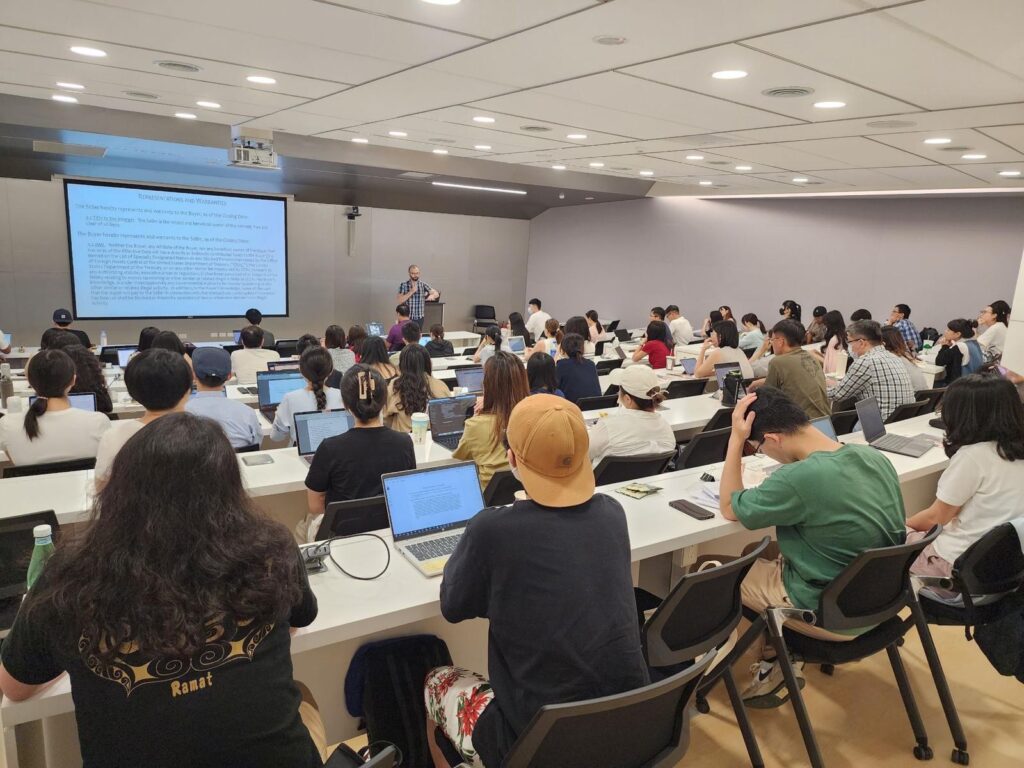
Finally, Professor Dundon taught U.S. Legal Research, Analysis & Writing in Georgetown Law’s Summer Experience Program for entering LL.M. students.
It is hard to believe that the summer is almost over! We have several personal and professional highlights to share.
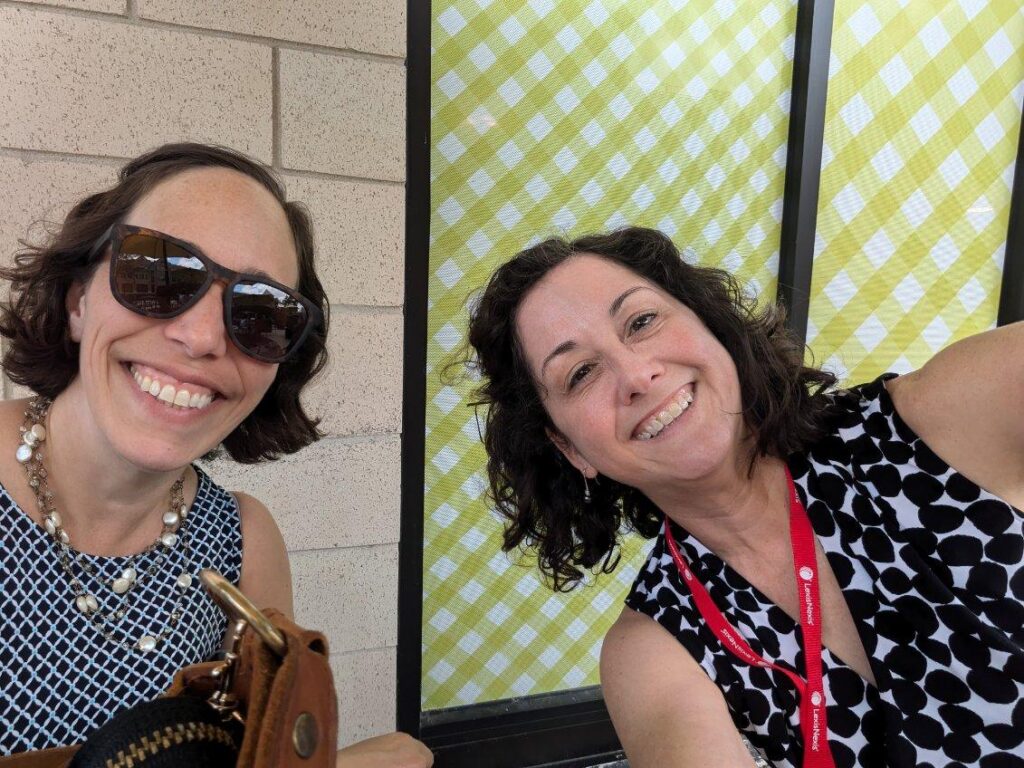
Vacations & Family Time
Since our last blog post, we took time to relax with our respective families.
Professor Julie Lake spent much of the summer with family and friends in Cape May (New Jersey), Chapel Hill (North Carolina), and Philadelphia (Pennsylvania). Though the sun was in full force in Cape May (aka, the “beach”), the jellyfish prevented her from swimming in the ocean. (It is hard to conquer these lifelong fears!) She was able to spend time with her husband and daughter, watching movies and TV shows about unicorns, playing her guitar, and completing kid-friendly art projects.

Professor Heather Weger traveled to Chicago (Illinois) and Richmond (Virginia) to visit her husband’s family), and she spent time with her Mom (from Arkansas) and sister (from North Carolina) as they visited her here in DC. She also spent a week at the beach (North Carolina), binge watching the Olympics, collecting sea shells with her children, and catching up on pleasure reading. Reconnecting with family always brings a renewed sense of identity and energy!
Summer Projects

Between family trips and vacations, we have continued to refine our asset-based approach to teaching Legal English. Specifically, we presented at the Legal Writing Institute (LWI) Biennial Conference in Indianapolis in July. In our presentation, “Linguists in Law School: Rebooting Legal Education to Empower Multilingual Law Students,” we highlighted the value that multilingual law students bring to law school and showed effective pedagogical strategies to enhance their Legal English. We also enjoyed the presentations we attended, and we came away with practices ratified (e.g., mindfulness of cultural and linguistic references in teaching), new practices introduced (e.g., a new approach to cultivating creativity), and some practices overturned (e.g., unexpected ways of handling plagiarism).
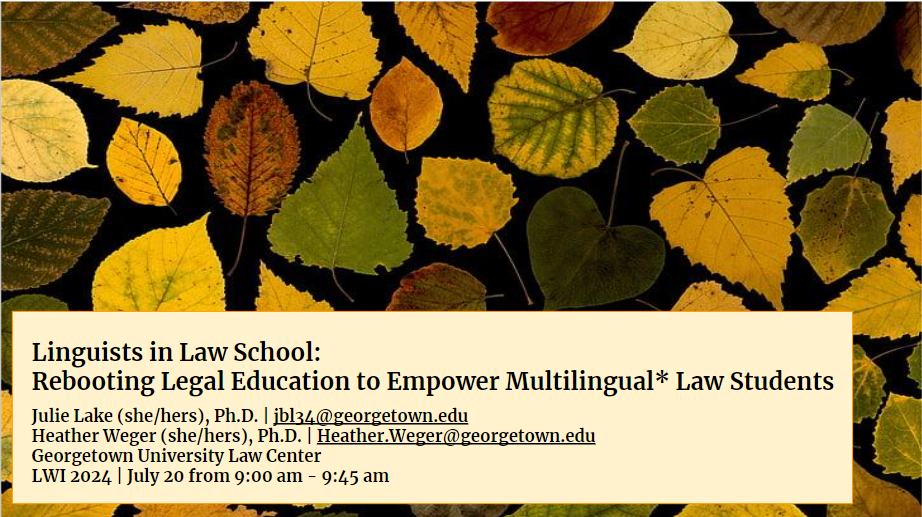
The Upcoming Academic Year
We look forward to another academic year with the Two-Year LL.M. program!
We are offering a newly designed course to the Two-Year LL.M. students, Academic Legal English: Special Topics, which engages students in experiential learning to enhance their oral communication skills, grammar skills, and professional language skills. The course topics include:
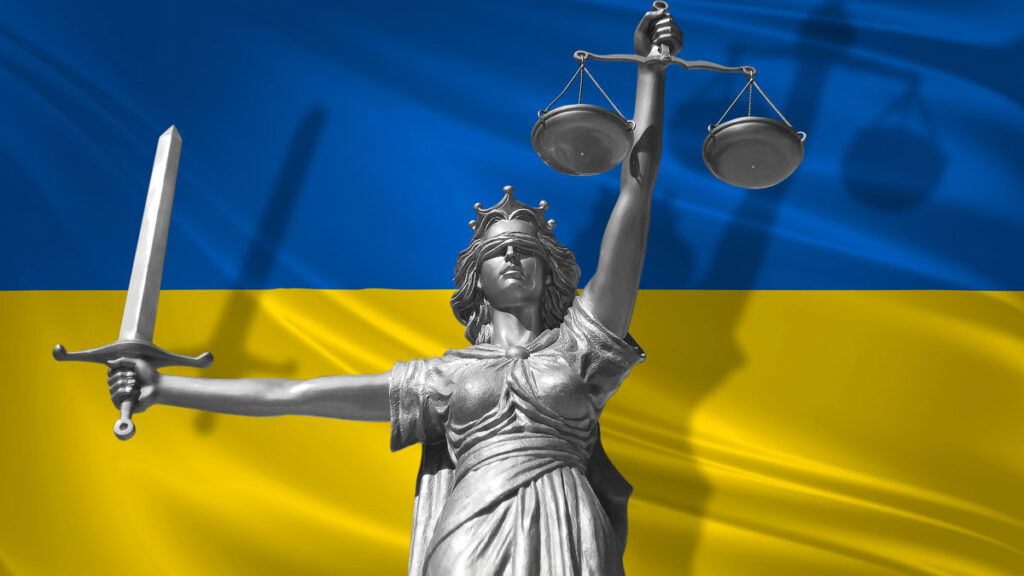
We also look forward to some exciting upcoming projects with our legal English colleagues at several Ukrainian law schools.
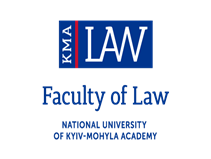
As we reflect on its evolution over since 2008, we are proud of the quality legal English curriculum that the team has developed. We welcome the new cohort of students and look forward to staying in touch with the students in their second year!
16th Global Legal Skills Conference (Bari, Italy; June 6-8, 2024)
Had a fantastic and productive experience at the 16th Annual Global Legal Skills Conference in Bari, Italy where I presented on the topic: “Making Legal English Accessible: Ukraine, Afghanistan & the US Bar Exam.”
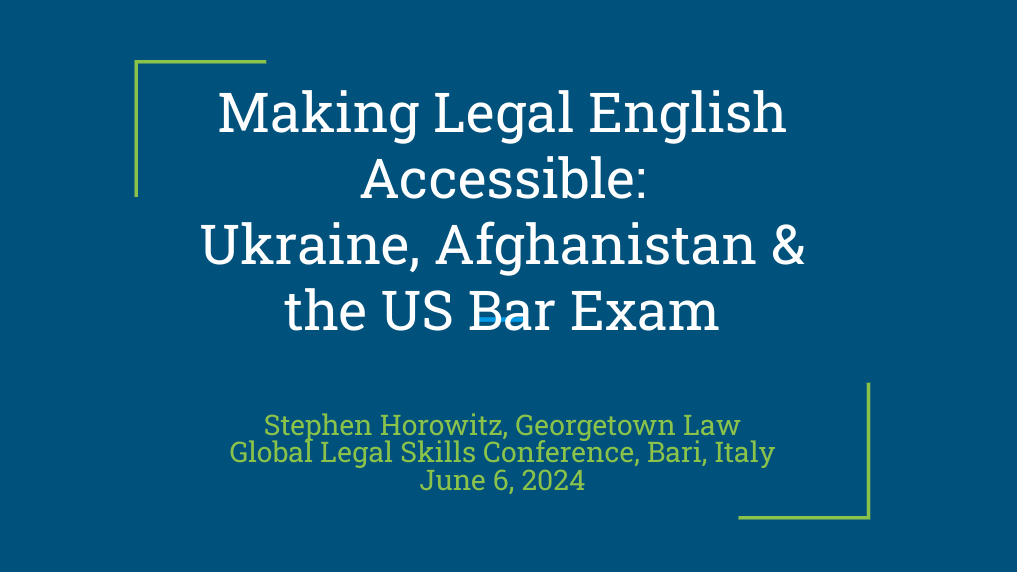
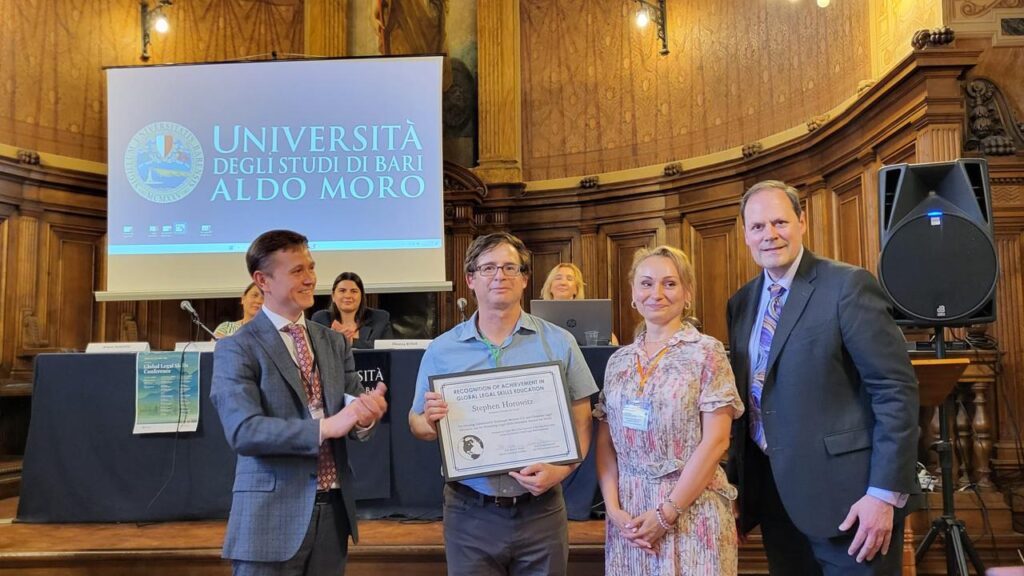
I was also extremely honored to receive an “Individual Award”Recognition of Achievement in Global Legal Skills Education” award from the Global Legal Skills Institute for “creating collaborative exchanges between US and Ukrainian Legal Educators and for Promoting Legal Skills Education Around the World.”
The other fantastic part was getting to meet so many wonderful members of the Global Legal Skills community in person, including Mark Wojcik, David Austin, Lurene Contento, Chantal Morton, Kim Holst, Artem Shaipov, Louise Kulbicki, Natasha Costello, Claudia Amato, Lindsey Kurtz, Susan Dudley, John Thornton, Shelly Saltzman, Bythia Loudon, Kateřina Chudová, and many others. And particularly special was getting to finally meet in person Ukrainian law professors Oksana Kiriiak (Yuriy Fedkovych Chernivtsi National University) and Nadiia Maksimentseva (Oles Gonchar Dnipro National University), who had both been active participants in all of the legal English trainings over the past year.
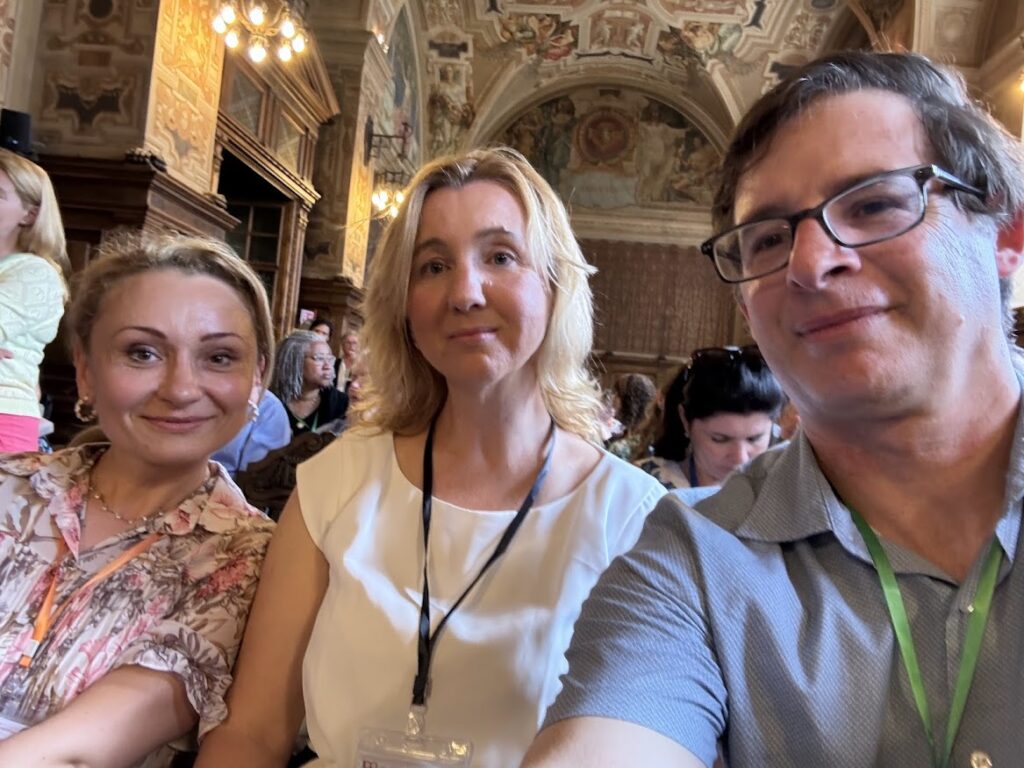
Fact of the day: The bones of St. Nicholas (aka Santa Clause) are buried in the Basilica of Saint Nicholas in Bari. And thanks to a recommendation from a friend, I just started reading an amazing novel of historical fiction titled Nicked by M.T. Anderson which is set in Bari which tells the somewhat fictionalized story of how Santa’s bones ended up there.
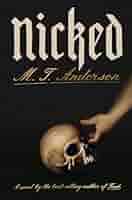
Sri Lanka
Flew to Sri Lanka to lead workshops on legal English curriculum development for the University of Colombo and University of Jaffna in connection with USAID’s Efficient and Effective Justice (EEJ) Program in Sri Lanka. Also met with faculty from the Open University of Sri Lanka and University of Peradeniya to lay the groundwork for legal English curriculum support. Similar to the situation in Ukraine, law schools in Sri Lanka are in the process of moving to English-only curriculum.
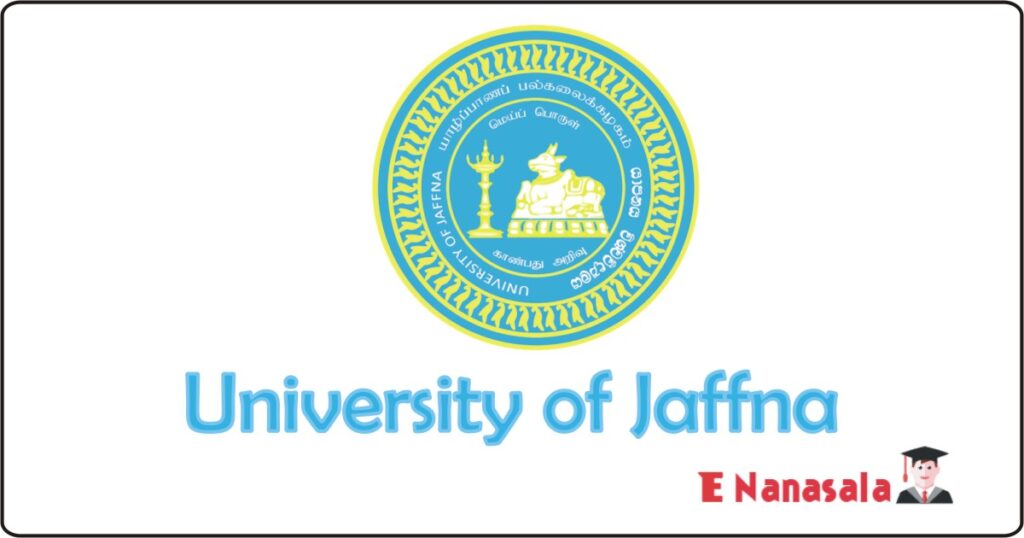
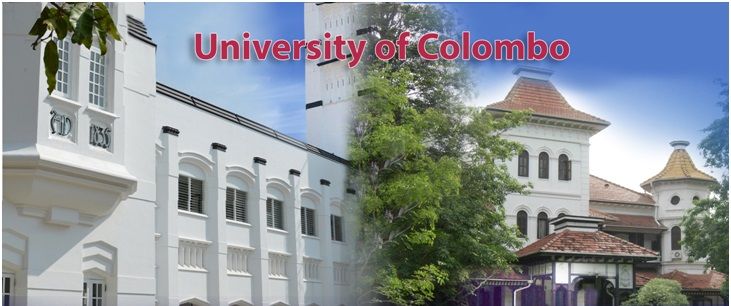
Ukraine
ABA Afghan Legal Professionals Scholarship & Mentoring Pilot Program
Continued providing the online self-guided pre-LLM legal English program for fellows in the ABA Afghan Legal Professionals Scholarship & Mentoring Pilot Program. The course, which I co-created, is hosted on the USLawEssentials learning management system. The course is made available for free to all fellows in the program who have completed the legal English assessment designed by Prof. Lindsey Kurtz (Penn State Law), Prof. Dan Edelson (Seton Hall Law), and me last year to support the ABA Pilot Program.
The International Jurist
Was quoted in the article “Legal English Bridges law and language for foreign-educated LLM students,” written by Joshua Alter (Associate Dean of International Programs at Northwestern Pritzker School of Law) which appeared in The International Jurist June 21, 2024.

Bar Exam Support for LLM Students
*Once again co-taught with Prof. Daniel Edelson (Seton Hall Law) a 4-week bar essay skills course (for MEE and MPT) this summer through USLawEssentials using a “pay what you can” model to make legal English bar support accessible to all LLM students who need it.
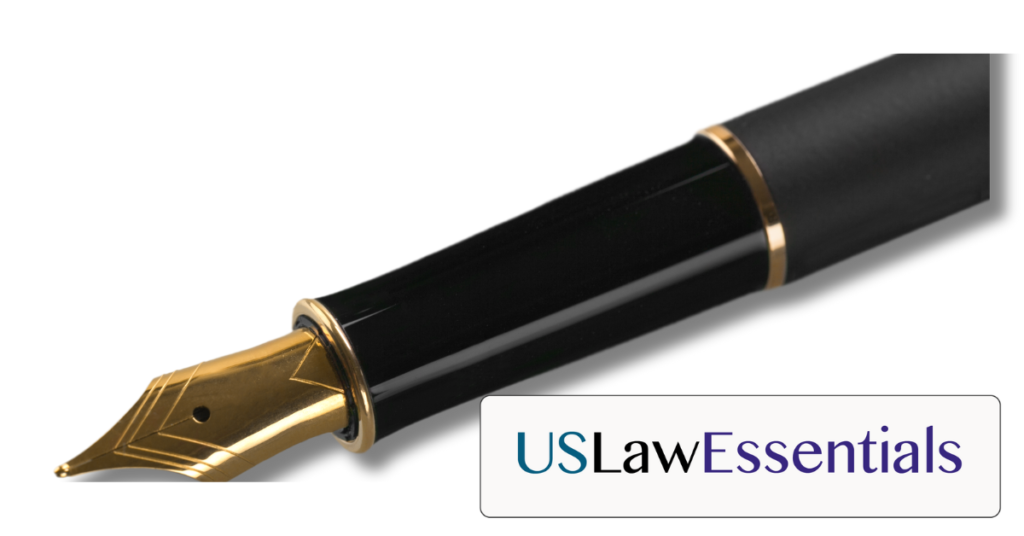
Online Legal English
Continued my annual tradition of teaching part of the summer pre-LLM English for American Law School course for incoming LLM students at St. John’s Law School. After leaving St. John’s in 2020, I collaborated with Daniel Edelson to create an online version of the summer legal English program in St. John’s Canvas system. The course content, which we designed to be used as both a synchronous or self-guided course, helps students learn the basics of the US legal system, US law school culture, legal writing, and case reading and analysis.
Fall 2024 Semester
Excited to be teaching sections of both Legal English and US Legal Research & Writing this semester to the Two-Year LLM students this fall semester!

Post by Sokunthyda Long, a Fulbright recipient who graduated from Georgetown Law’s Two-Year LLM Program in 2023, passed the New York bar, and is part of the restitution team in repatriating artifacts back to Cambodia.
From interviewing former looters at remote cultural sites to being featured on a 60 Minutes segment by Anderson Cooper on the repatriation of Cambodian artifacts, my team at Edenbridge and Brad Gordon, along with the support and partnership with the Cambodian Ministry of Culture and Fine Arts, Homeland Security Investigations, and the United States Attorney’s Office for the Southern District of New York and other important liaisons, have been successful in returning hundreds of artifacts back to Cambodia.”
I started out as a legal intern at Edenbridge Asia in 2020 where I was involved in the repatriations of looted Cambodian artifacts. The team and I, along with other relevant stakeholders, are currently working to set up the Cambodian Treasures Foundation to focus on repatriation of statues and preservation of cultural heritage. My work consists of interviewing former looters, documenting evidence, and negotiating with museums, private collectors, and other dealers to return looted artifacts. These investigations have resulted in various significant returns, including the recent return of 14 artifacts from the Metropolitan Museum of Art in July, 2024.

While matriculating at Georgetown Law’s Two-Year LL.M. Program with a focus in International Business and Economic Law in 2021, I was taught necessary skills to further my statute repatriation work. The Two-Year LL.M. Program provided me with more time to understand the legal world, especially in international legal diplomacy. I came to understand the significance of soft diplomacy in navigating through the intricacies of politics and economics of international relations. My legal writing and analysis courses have been critical in my understanding of expressing necessary legal arguments to other parties. I am able to draft letters, negotiate, and make requests for provenance research in a more professional manner. The Fundamentals of Legal Writing classes taught me to write with a reader in mind, a skill I developed and have since practiced in my current employment. Further, it is a skill I use in other contexts as well such as conveying my thoughts and rationale to team members, former looters, the media, and other persons in my everyday life.

Applying the knowledge and skills I learned at Georgetown Law to my current work, I am able to communicate with museum directors, cultural experts and other associates in a more confident manner when it comes to consulting and negotiating on returning or loaning the artifacts. It felt incredible to celebrate the returns of the 14 artifacts from the Met, especially the ones I personally researched back in 2020, where I went to the pillaged site and saw the bases and other fragments there. I talked to the former looter to gather more information about it, such as the size of the artifact, the period style, the medium, and any other necessary information that would help make our evidence stronger. It was rewarding to be able to go to the airport and watch the artifacts arrive, proving that the work the team and I did really led to remarkable results.
The repatriation has brought attention and has been picked up by major international media such as various articles written by The New York Times and The Economist, a 60 Minutes episode by Anderson Cooper and a 2 minute podcast by NPR’s All Things Considered.
Despite all of this media coverage, I have to admit that it’s still a bit unbelievable to me that we got the Met to return the artifacts. But I’m extremely proud to have been able to contribute to the effort.
Below are photos provided by Long:

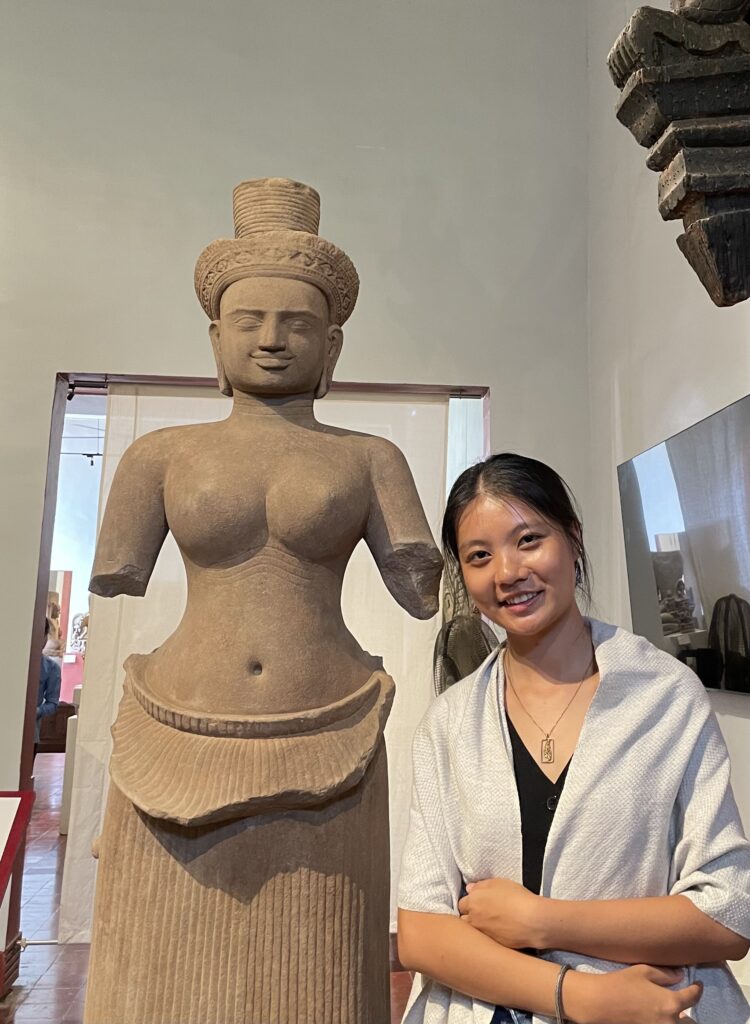
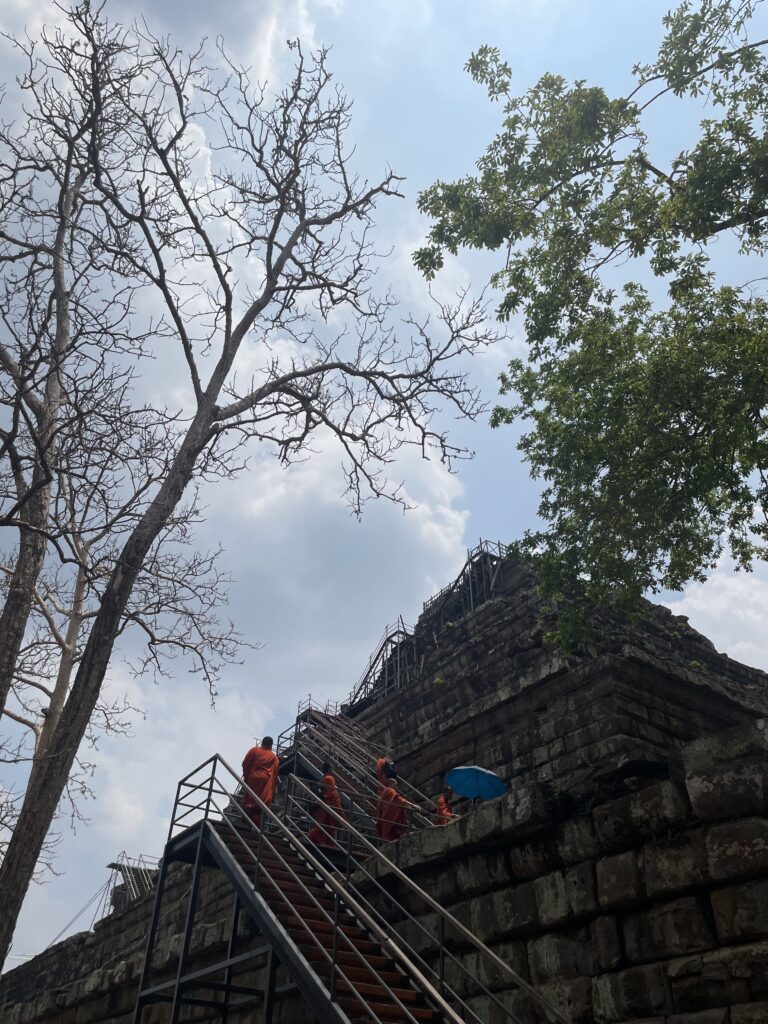

Post by Stephen Horowitz, Professor of Legal English
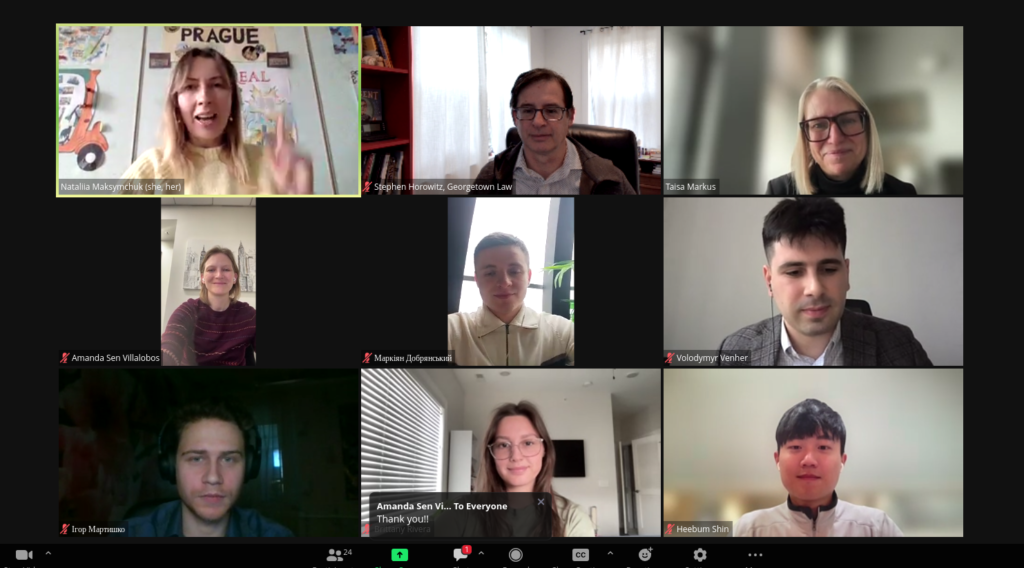
On Wednesday, March 20, 2024, the closing Zoom call for the Kyiv-Mohyla Academy Peer-to-Peer Legal English Writing Project was held, concluding a second 6-week session of this continuing innovative project. (The first ran during the fall 2023 semester.)
The project was initiated in 2023 by National University of Kyiv Mohyla Academy (KMA) Law Dean Volodymyr Venher working with project Director Taisa Markus, who is an adjunct professor of law for University of Illinois College of Law (which hosts the website for the project) as well as a Visiting Professor at KMA, Project Deputy Director Nataliia Maksymchuk, Senior Lecturer of English at KMA, and Ivan Yatskevych, Professor of Labor Law at KMA who collaborated with Markus to create the legal writing assignments for the participants.
In each session, approximately 20 KMA law students have been paired with tutors who are JD students from a variety of US law schools including University of Illinois, Georgetown, Yale, Columbia, University of Chicago, and Fordham. The KMA students are given a writing assignment created by faculty. (e.g., For the January 2024 session, Markus and and Yatskevych created the assignment along with support from Georgetown Legal Writing Professor Eun Hee Han as well as from Virginia Robinson (University of Chicago Law, ’23) who had served as a tutor in the fall 2023 pilot version of the program.
For the Spring 2024 assignment, KMA students learned they were junior associates at Ukraine’s largest law firm, and their firm’s client–a US cookie company–was planning on purchasing a 10% share of Ukraine’s largest confectionary company. But they need the junior associates to prepare a legal memo for the General Counsel and CFO of the US client analyzing an intellectual property rights dispute potentially affecting the acquisition.
KMA students met with their JD tutors via Zoom approximately 1 to 2 hours each week as they researched the law and wrote their memos in English. And in addition to learning about legal writing, everyone involved also seemed to learn more than they initially expected–about each other’s lives and countries; about each other’s legal systems and legal writing cultures.
I’ve been very fortunate to have a role in helping to identify Georgetown Law students interested in participating. And they shared some wonderful insights upon the completion of this second session:
Kevin Jupena (JD, 2025): “It was a great experience. I found it extremely helpful personally to reexamine my own writing style when making edits. Hopefully I can continue to be a part of this program next time they run it.”
Fankai Meng (LLM, 2024): “This project was very meaningful. I actually had the opportunity to learn more about legal writing myself through this project. I admire how hard the KMA students worked during this difficult time. And my peer mentee also helped me learn a lot about Ukrainian law and how a civil law system deals with this kind of case. I greatly appreciate having had this opportunity.”
Joey Gaston (JD, 2025): “I learned from my peer mentee that long, complex sentences are commonly used in Ukrainian legal memos. At times, a single sentence in a Ukrainian legal memo may make up an entire paragraph. Based on the complexity of the writing my peer mentee submitted, we worked to break down her complex sentence structure into more manageable segments, with a goal of keeping the sentences in the US legal memo three lines or less in length. Overall, the experience was great for me, and I hope it was equally as informative for my peer mentee.”
The KMA Peer-to-Peer Writing Project is one of a number of legal education collaborations happening between Ukrainian law schools, faculty, and students and law schools and legal education professionals in the US and elsewhere around the world.
If you or your institution is interested in getting involved in the Kyiv-Mohyla Academy Peer-to-Peer Legal English Writing Project, please feel free to contact Taisa Markus (taisamarkus@icloud.com) and Nataliiya Maksymchuk (n.maksymchuk@ukma.edu.ua).
For more information about the program, check out this post from the KMA Faculty of Law website titled “Innovative English Language Peer to Peer Writing Workshop Pairing US and Kyiv Mohyla Law Students.”

Post by Stephen Horowitz, Professor of Legal English. LE Journal is an opportunity to share some of the current goings-on of Georgetown Law’s Legal English Faculty.

Professors Julie Lake and Heather Weger met via Zoom this week with four Ukrainian philologists (i.e, historical linguists) to discuss pedagogical approaches and the use of Chat GPT in Legal English classrooms.

The Ukrainian legal English faculty members were Anetta Artsysshevska, Nataliya Hrynya, and Lily Kuznetsova from Lviv Ivan Franko National University and Olena Zhyhadlo from Taras Shevchenko National University of Kyiv Law School.
We enjoyed a fruitful conversation about our collective successes and challenges, and we plan to meet again in February to continue the conversation.
The relationship evolved from a larger effort initiated by the Global Legal Skills community back in 2022 to foster connections and collaboration among law and legal English faculty in Ukraine

A nice article via The Brief, Georgetown Law’s community newsletter, titled “Bridging Language and Law at Georgetown” in the January 18, 2024 issue that highlights the work of Professor Stephen Horowitz, the 2-Year LLM Program, and the Legal English faculty.


Post by Stephen Horowitz, Professor of Legal English
Here’s what the Georgetown Legal English faculty have been up to over the fall 2023 semester….
****************
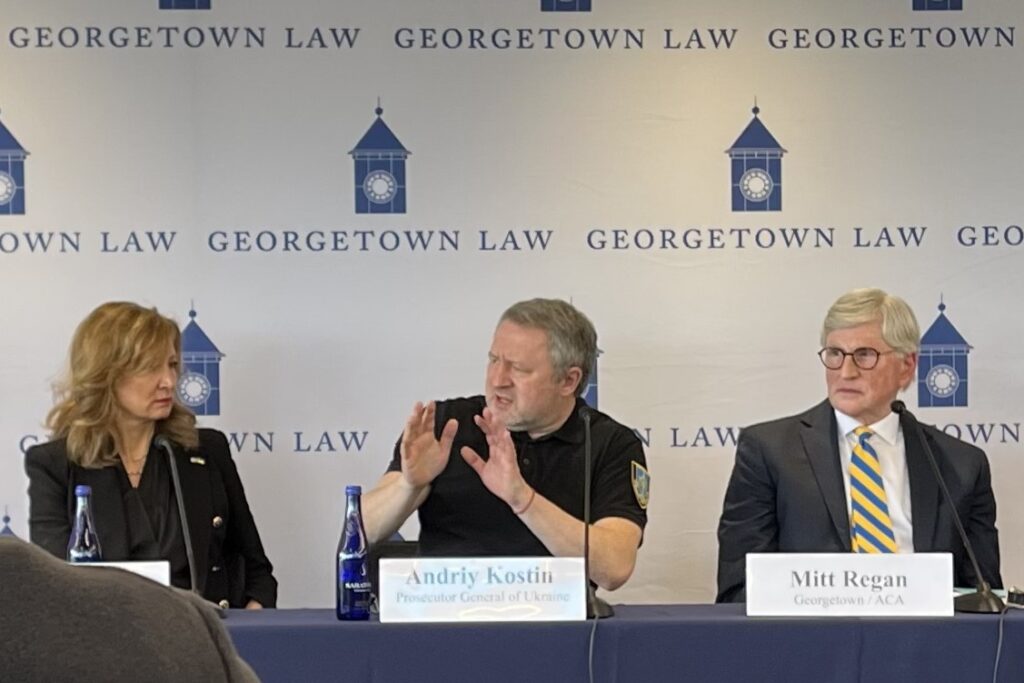
Legal English team members Professors Julie Lake, Heather Weger, and Michelle Ueland designed and delivered an intensive 5-week Legal English program for the Office of the Prosecutor General of Ukraine from November 13-December 15, 2023. They collaborated with Georgetown Law’s Center on National Security (with Professor Mitt Regan and Anna Cave) and the Atrocity Crime Advisory Group (ACA).
It was an honor to work with such dedicated colleagues and students. We look forward to future collaborations of this kind. Stay tuned for a more detailed blog post in January!
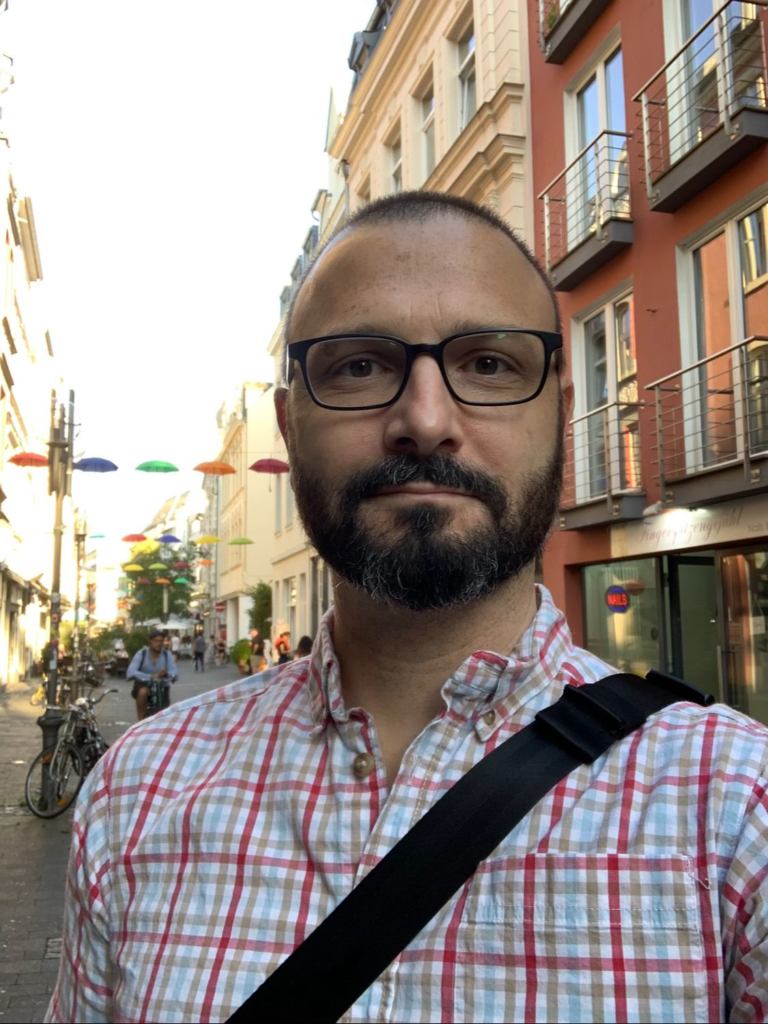
This September, Professor Dundon was invited to participate as a panel discussant at a linguistics conference at the University of Bonn, Germany. The title of the conference was “Language as a Social Practice: Constructing (a)symmetries in legal discourse,” and Professor Dundon spoke on a panel (together with professors from Germany and Finland) about how asymmetries in legal discourse can lead to societal injustice.
He thoroughly enjoyed attending the conference and considers himself very fortunate to have been invited to meet with so many leaders in the field of language and law. The conference proceedings will be published (together with a contribution from Professor Dundon) in an upcoming volume with Cambridge University Press.
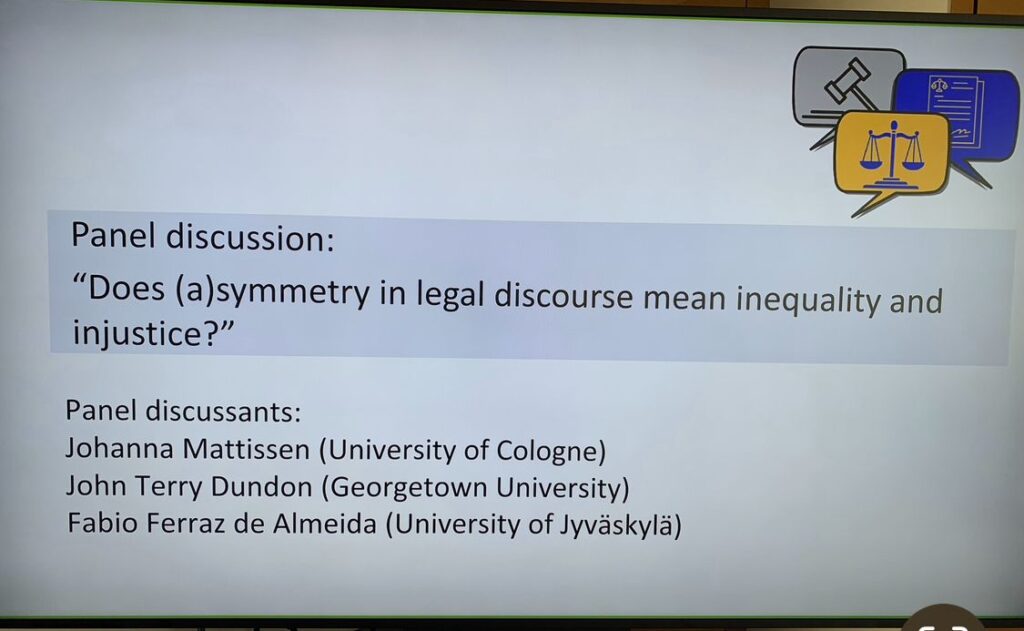
In other news, Professor Dundon is finishing up his final year of coursework towards his doctorate in sociolinguistics. This semester, he is researching interactional features of Supreme Court oral arguments, and specifically the “production format” of utterances made by attorneys as they negotiate having to speak on behalf of themselves, their client, and their legal team. Professor Dundon is also conducting a survey of ideologies about language use and language learning on the public-facing websites of local bilingual schools in the District of Columbia.

Ukraine
*Collaborated with Artem Shaipov of USAID’s Justice For All program and several other legal English professors (Alissa Hartig, Susan Dudley, Catherine Beck, Oksana Kiriiak, and Linda Pope) to provide multiple legal English trainings for Ukrainian law faculty and legal English faculty over the course of the Fall 2023 semester.
*Led one of the trainings–9 sessions of Legal English Conversation–and recruited a cohort of 15 additional law/legal English volunteers (including colleague John Dundon) to engage with Ukrainian faculty in each Legal English Conversation session.
*Currently in the process of setting up additional trainings during Spring 2024. And planning a new round of matching Ukrainian law schools with any international law school/legal English faculty interested in teaching a course, guest lecturing, providing support for academic publishing, or helping in other ways. (Email Stephen.Horowitz@georgetown.edu if interested in volunteering in some capacity.)
*Recruited Georgetown Law JD students to participate in a six-week peer-to-peer legal writing project with students from Kyiv Molhya Academy University during the fall semester that involved JD students from several other US law schools as well. Currently recruiting more Georgetown Law students for the next session to start late January.
*In collaboration with law professor Alan Blakely, helped set up the Ukraine-related Resources Page.
*Reached a 500-day Duolingo streak for Ukrainian language study!
Afghanistan

*Continued conducting assessments for Afghan judges and lawyers in connection with the ABA Afghan Legal Professionals Scholarship & Mentoring Pilot Program. The assessment project is in collaboration with Prof. Daniel Edelson (Seton Hall/USLawEssentials.com) and Prof. Lindsey Kurtz (Penn State Law).
*Created, with Daniel Edelson, a self-guided online pre-LLM legal English program (i.e., Fundamentals of the US Legal System; Reading Cases; Legal Writing) to help prepare Afghan candidates getting ready to start an LLM program at a US law school.
*Currently working with ABA program leaders to recruit additional mentors–both law faculty and law students–to provide legal English and other support for the candidates. (Email Stephen.Horowitz@georgetown.edu if interested in volunteering.)
Japan
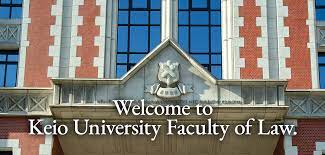
*Guest-lectured in three classes for the legal English course at Keio University Law School on the topics of Case Reading Strategies and the Language of Analogy.
USA
*Teaching a December/January “Bar Essay Writing Skills for LLM Students” online course for USLawEssentials together with Prof. Daniel Edelson. The course is designed to be accessible to all students who need it regardless of finances, and provides specialized bar essay writing support geared to non-native English speakers.
*Was the subject of interviews by Wordrake (on Legal English and Plain English) and Amicus Partners (on my career path to becoming a legal English professor.)

*Provided a book cover blurb for The “Getting to Yes” Guide for ESL Students and Professionals: Principled Negotiation for Non-Native Speakers of English by Barrie J. Roberts at the request of University of Michigan Press.
*Received a wonderful email from a former student, reprinted with her permission:
“I found out I passed the New York bar yesterday! I wanted to thank you specifically because both torts and criminal law came up on the exam. The torts essay was asking for all elements of negligence so that was our entire final exam for Legal English 1. The criminal law essay had 4 sub issues and they were all about Miranda rights, custodial interrogation and whether the defendant waived it knowingly, voluntarily and intelligently. Thank you again for the classes. I remember writing everything I learned from classes instead of from the bar prep materials for those two essays. I’m really grateful for that!” —Sokunthyda Long (Cambodia), graduate of the 2-Year LLM Program at Georgetown Law
**************************
Wishing everyone a happy, healthy, and peace-filled holidays and New Year!


In legal English (and in life), mistakes are good.
Educators often talk about what and how we teach our students. But in my last semester as a Legal English Fellow at Georgetown, I want to share what I’m learning from the two colleagues who have taken me under their wings.
The number one pain point of many legal English learners is their lack of confidence in their oral communication skills….. They’re afraid that communication mistakes will be interpreted as if they don’t know what they are talking about (law-wise) or that people will think they are not good lawyers.
This week’s most valuable lesson can be summed up like this: it’s good to make mistakes. Here’s a little context: In Prof. Julie Lake’s Oral Communication in the Law class which is part of Georgetown’s Two-Year LLM Program, students were given prompts to practice their oral communication skills. The class is designed to start students off within their comfort zones and help build up their confidence as legal English speakers.

The number one pain point of many legal English learners is their lack of confidence in their oral communication skills. Like their English-speaking colleagues, non-native English speakers are highly intelligent and well-versed in their legal systems. They want nothing more than to display their exceptional lawyering skills in English, but they often doubt their ability to communicate effectively. They’re afraid that communication mistakes will be interpreted as if they don’t know what they are talking about (law-wise) or that people will think they are not good lawyers.
This is a legitimate fear. Nobody wants to be embarrassed, especially not when practicing law. That’s why oral communication training is not just about getting students to speak English, but to do so in a way that builds up their confidence. Students know a lot more than they realize and they are often much better at communicating in English than they think.
So Prof. Lake gives students prompts that are personalized to each individual and serve as both a diving board for them to start speaking, and also as an ice-breaker for them to get to know each other and to build a sense of community. Ultimately, the underlying feeling at the end of each of Prof. Lake’s classes is that we are all in this together, and this is a safe space for students to speak English, make mistakes, and learn.
Mistakes are welcome and should be embraced. Mistakes are learning opportunities. And making mistakes in English doesn’t reflect poorly on learners as lawyers. Mistakes are, according to Prof. Lake, when learning happens. So my favorite takeaway this week is to welcome mistakes.

#legalenglish #englishlearning #englishcommunication
Click here to see previous Georgetown Legal English Blog posts about Prof. Paula Klammer.
Post by Stephen Horowitz, Professor of Legal English
Here’s what the Georgetown Legal English faculty have been up to over the summer….

Professor Hoffman gave a talk at the U.S. Supreme Court in early August. He was invited by the Association of the Reporters of Judicial Decisions, whose annual meeting was held at the Supreme Court. He was asked to speak about Language and Law and specifically about his paper, Parse the Sentence First: Curbing the Urge to Resort to the Dictionary When Interpreting Legal Texts. (Additionally, he also managed to get the New York Reporter of Decisions to send him an opinion from a New York trial court that the Georgetown Law librarians had been seeking!)

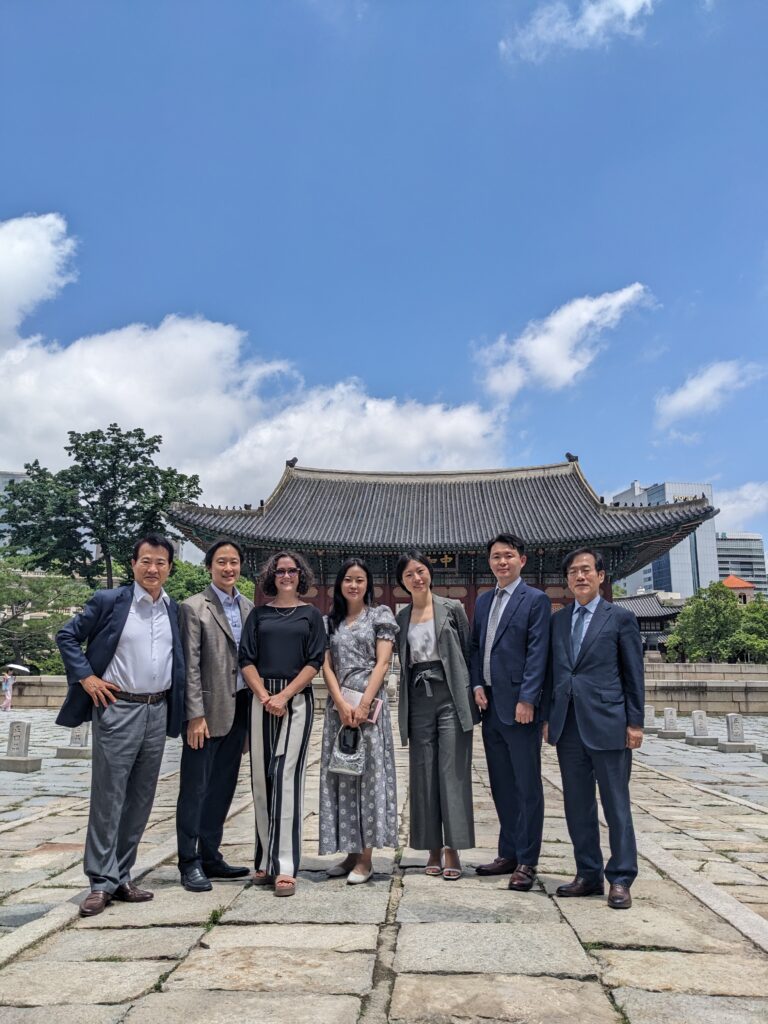
Summer 2023 was packed with legal English endeavors! A highlight was meeting up with LL.M. and J.D. alumni during a visit to South Korea, generously hosted by Law Center alumnus, Chairman Seung-Hoon Lee .
The opportunity to connect with our multilingual community in a global setting affirms the legacy of the Georgetown experience. I was delighted to share insights about our Two-Year LL.M. program with these colleagues and welcome two of our incoming students.
Back in the U.S., I’ve been excitedly working on the release of the next issue of AL Forum, the Applied Linguistic Newsletter for TESOL, a publication I co-edit with Dr. Natalia Dolgova. This issue will explore the impacts of artificial intelligence (AI), such as the emergent use of ChatGPT, on educational practices; it includes articles from Georgetown colleagues Professor Stephen Horowitz and Technology Specialist Ellery Boatright.
Research also found a way into the summer! Professor Julie Lake and I are collaborating on upcoming conference presentations and publications that focus on integrating asset-based pedagogical practices into Legal English education. As this busy summer wraps up, I look forward to an even busier school year!

Professor Lake had a wonderful summer traveling around the U.S. with her husband and daughter. She spent a week at Cape May, NJ at the beach, a week in Chapel Hill, NC, and a week in Philadelphia, PA.
During her summer she made progress on her personal “language-based” summer project to learn Spanish. Language learning is a lifetime journey!
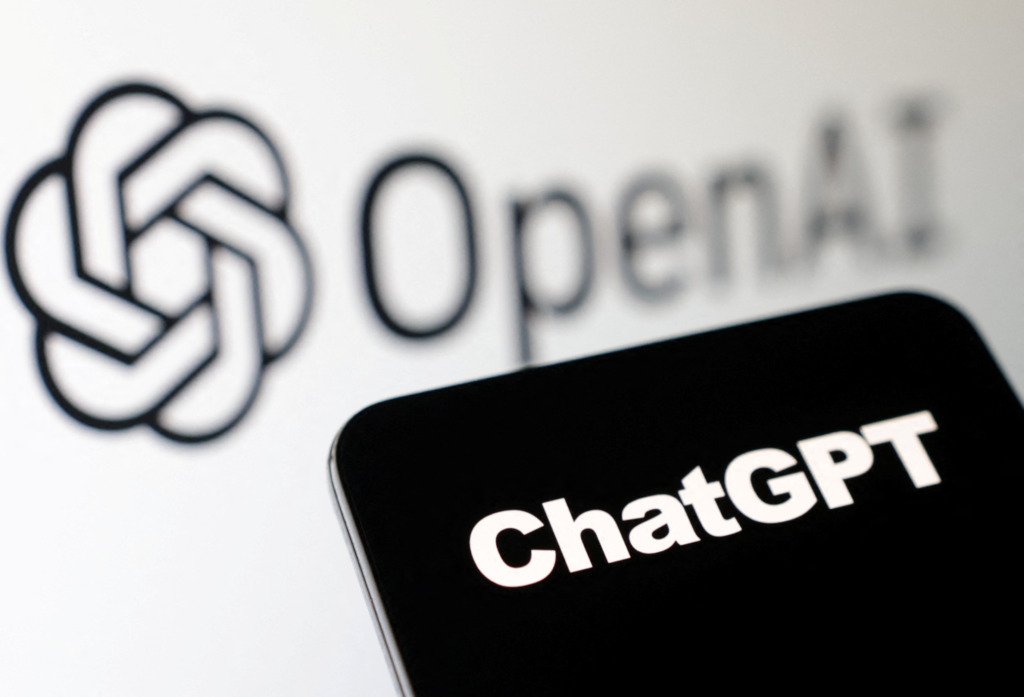
Professor Lake also spent time working with Professor Weger to revise the language-focused curriculum for Fundamentals of Legal Writing for the 2023-2024 academic year. In Fall 2023, incoming Two-Year students will learn how to use language-based strategies to craft a high-quality memo (i.e., a lawyer-to-lawyer document). In Spring 2024, incoming Two-Year students will learn about the scholarly writing genre and how to write a high-quality mini-scholarly legal research paper.
And finally, Professor Lake enjoyed researching productive ways to use ChatGPT as a learning tool for law and linguistic students.

Professor Dundon began his summer by presenting at the Sixth International Language & Law Conference at the University of Bialystok Faculty of Law in Bialystok, Poland in June (see prior post).
He then taught a summer class, Introduction to U.S. Contract Drafting and Interpretation at IE University Law School in Madrid, Spain, where he has taught for the past three summers.
In July, Professor Dundon presented a paper, When multilingual litigants encounter monolingual ideologies in U.S. judicial opinions, at the Twelfth Bonn Applied Linguistics Conference in Bonn, Germany; he’s been invited back to Bonn to appear as a discussant in a conference focused on legal discourse, taking place in September (more on that in a future post).
He also traveled in Morocco, Uzbekistan and Tajikistan with family, before returning to Georgetown to teach U.S. Legal Research, Analysis, and Writing as part of the LL.M. Summer Experience program.
Professor Dundon ended the summer with a presentation at Georgetown Law’s faculty summer research workshop, where he spoke about his paper “A shifting precipice of unsettled law?”: A survey of how U.S. courts treat expert testimony using forensic stylistics, which was published this month in the International Journal of Speech, Language and the Law.

1. Summer Teaching
Professor Yi Song taught two courses during the Summer Experience – “Foundations for American Law” (co-teaching with Professor Michael Cedrone) and her summer stable, “U.S. Legal Research, Analysis and Writing.”
She’s especially proud of being responsible for the idea of the group assignment for the Foundations class.
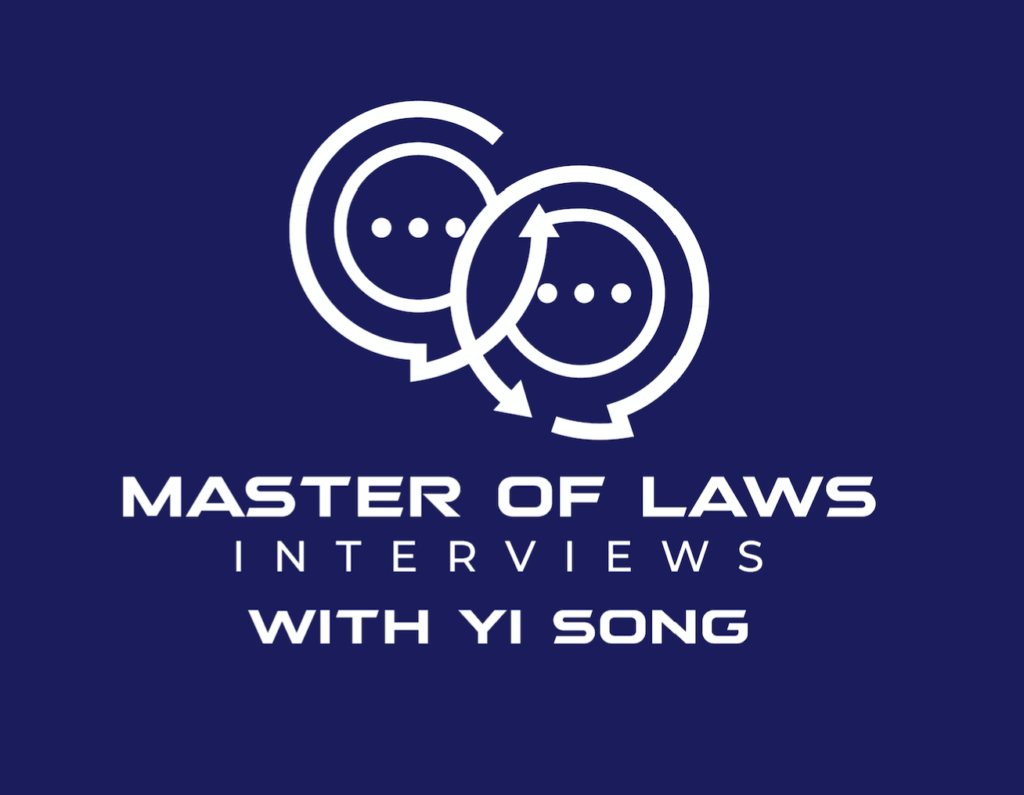
2. Professor Song’s Master of Laws Interviews Project
Master of Laws Interviews Project has come to the classroom this summer. Season 2 is being recorded now. Stay tuned for the Fascinating journeys such as how a lawyer got hired and became the first shareholder with international background in a firm’s 137 year history; How a former star student from legal research and writing class successfully turned her externship into the international associate position at BigLaw. And more!
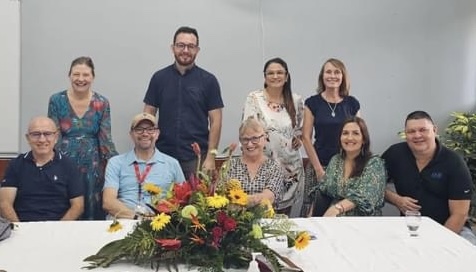
I was an invited keynote speaker for this conference in Costa Rica (at a branch campus of my MA alma mater, la Universidad Nacional) on August 17 & 18. I gave two presentations (#1 and #2 below) and the closing plenary (#3).
1. “Advancing Listening and Speaking Skills in English for Specific Purposes (ESP) Classrooms”

2. “In Your Voice and In Your Shoes: Experiencing Sanaz Toossi’s Pulitzer-prize-winning play “English”
3. “What’s all the chatter about? Writing educators’ pedagogical responses to generative artificial intelligence (AI) products like ChatGPT-3.5”

I presented at the Global Legal Skills Conference at Nottingham Law School at Nottingham Trent University, England (July 30-Aug 1, 2023). My presentation was titled “Addressing international law students’ pronunciation needs: Best-practices informed by linguistics research and pedagogy.”
Abstract

Also,….

*Collaborated with a USAID Ukrainian representative to establish online legal English training programs for Ukrainian law faculty starting in Fall 2023. The effort has involved identifying interested US legal English instructors and matching their areas of expertise with the interests of Ukrainian law faculty.
*Set up assessments (pro bono) for female judges from Afghanistan preparing to enter LLM programs at US law schools. The project, which involved collaboration with Prof. Daniel Edelson (Seton Hall/USLawEssentials.com) and Prof. Lindsey Kurtz (Penn State Law), was at the request of an ABA initiative working to mentor and support female Afghan judges.
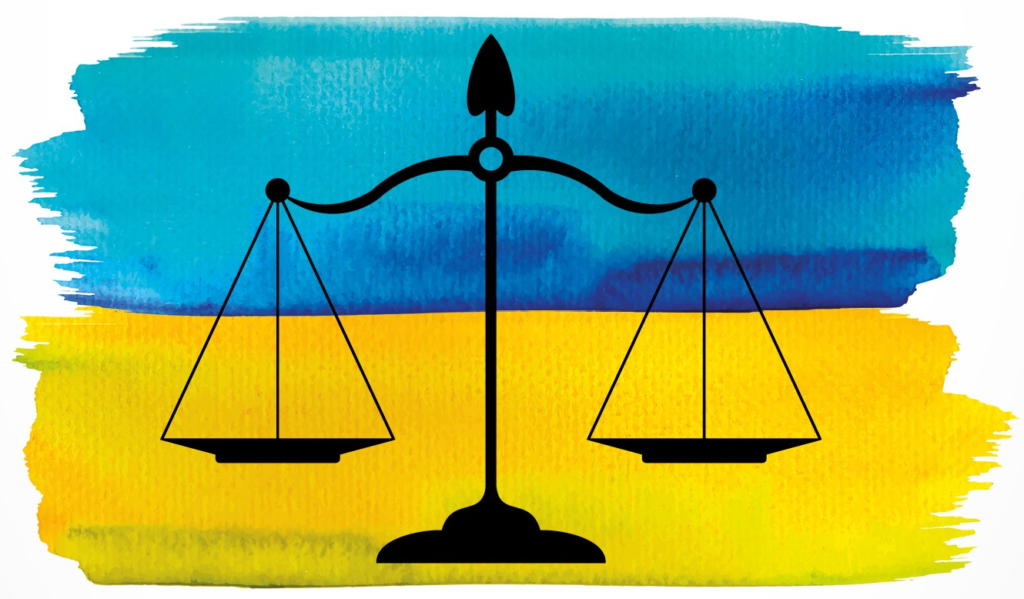
*Taught a 4-week online Bar Exam Essay Writing for LLM Students course during May/June, in collaboration with Prof. Daniel Edelson. The mission (and experiment) was to make the course accessible to any LLM or non-native English speaking law student, regardless of ability to pay, and it worked well. A second section of the course had to be created to accommodate excessive demand.
*Released a USLawEssentials Law & Language podcast interview with Seongryol Ryan Park, a graduate of Georgetown Law’s National Security Law LLM program, who previously worked for South Korea’s Ministry of Unification and now serves as Assistant Secretary to the President for International Public Relations.

*Set up the Tax Legal English Resources page on the Georgetown Legal English Blog.
*Wrote a soon-to-be published article abou for AL Forum, the Applied Linguistic Newsletter for TESOL, about using ChatGPT to create tax vocabulary practice activities.
*Invited to guest lecture (via Zoom) for a legal English course at Keio University in Tokyo, Japan during the fall 2023 semester.

*Had the opportunity to meet visiting scholar Professor Anna Yan, who teaches law at National Chengchi University in Taiwan and show her the new Legal English faculty offices in McDonough 477.
*Sadly was unable to attend the Global Legal Skills Conference in Nottingham, UK, July 30-Aug 1, which some attendees have shared was really fantastic. But hoping to attend the 2024 GLS Conference in Barri, Italy.
*Fortunate to have had a family vacation in July in a small town (Puerto Morelos) on the Yucatan Peninsula in Mexico, which was a very positive linguistic experience and first time out of the US for my children.